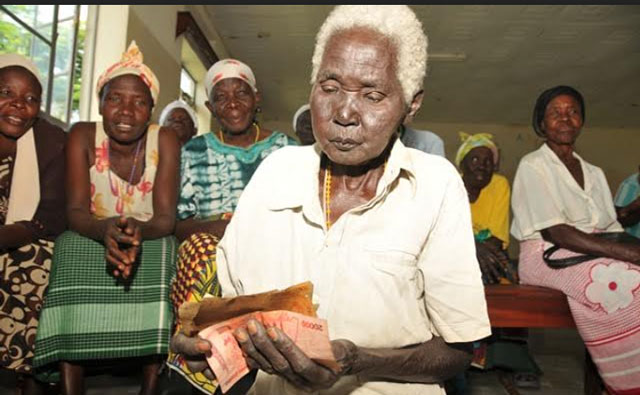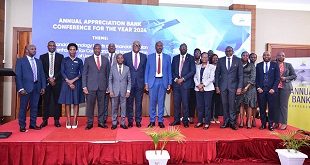
Kampala, Uganda | THE INDEPENDENT | The Attorney General has asked the High Court in Kampala to dismiss the case in which a group of elderly people sued the government on allegations of excluding them from accessing Social Assistance Grants Empowerment and Public health services due to lack of national identification cards.
On Monday the Attorney General through State Attorney Brian Musota presented before the Civil Division Judge Boniface Wamala several affidavits opposing the case filed by Initiative for Social and Economic Rights-ISER, Unwanted Witnesses Uganda Limited and Health Equity and Policy Initiative Limited on behalf of the elderly.
The case filed in April 2022 was filed against the Attorney General and the National Identification and Registration Authority.
The petitioners asked court to declare that the use of National Identification cards as the only means of identification to access SAGE and public health services violates their rights to social security protection.
Their case is based on research conducted in June 2020 which established that a third of Uganda’s adult population has not yet received National Identity cards and is therefore being left behind from benefiting from developmental programs and other services.
The study report titled “Chased Away and Left to Die” outlines that Uganda’s digital ID system, which guarantees access to social and other human rights, has instead led to mass exclusion.
They add that the digital identification register and system operates as a centralized digital ID system relying on biometric authentication which allows for the collection of metadata, mass surveillance and targeted profiling contrary to Article 27 which talks about the right to privacy.
These who were today led by Salima Namusobya the Executive Director ISER thus asked Court to compel the government to allow the use of alternative forms of identification for those who need to access health services and SAGE benefits.
But according to an affidavits submitted to Court today opposing the application, Stephen Kasaija the Head of Expanding Social Protection Program under SAGE Program in Ministry of Gender and Labor and Social Development on behalf of the government wants the case dismissed.
Kasaija says he knows all the new beneficiaries joining the program under the national rollout are required to be 80 years and above and to be registered with NIRA and to hold a valid National Identification card and not to be receiving any other government pension.
He argues that the use of the national Identification cards to access SAGE benefits is not exclusionary but rather an efficient measure aimed at promoting effective and efficient service delivery.
“That I know in absence of a credible system to authenticate the identity and age of beneficiaries, it is difficult to ensure that the benefits and services reach the intended beneficiaries. The rationale for this is so that ineligible beneficiaries do not access these funds to the disadvantage of those rightfully entitled to the benefits,” reads Kasaija’s affidavit.
According to Kasaija , the 2018 World Bank study on the potential of IDs in advancing social protection program indicated that direct income support and other programs require reliable identification for effective targeting and financial transfers and also to avoid undue duplication of enrollments.
On their part, NIRA through its Executive Director Rosemary Kisembo argue that they have issued IDs to millions of Ugandans and established branches country wide and even gone outside the country in some Ugandan embassies to issue cards.
Kisembo says in a case of a person incapacitated by illness, old age and other reason from applying for registration, the law mandates the guardian or other person responsible for the supervision or welfare of the person to take steps to cause the person to be registered.
She contends that the rationale here is that ineligible beneficiaries do not access these funds to the disadvantage of those rightfully entitled to the benefits.
Meanwhile, lawyers Raymond Owak and Elijah Enyimu have informed court that they have clients who would wish to join this case as friends of court in the interest of justice and that they will be raising preliminary points of law which haven’t yet been conversed by parties. The case has now been adjourned to December 13th 2022 for further hearing.
*****
URN
 The Independent Uganda: You get the Truth we Pay the Price
The Independent Uganda: You get the Truth we Pay the Price



The process of getting an identity card was not smooth to many Ugandans including those below 45 years of age
If one can register those who survive from hand to mouth by parish, how can it be difficult to get those who think they were born around the time of the second World War?
Even ensure that they receive what is due as they “sunbathe with a fixed gaze’
Just like we have child led families, there are many elders who have no body to attend to their needs
The irony of it all is that this group being let down by modern methods have more demands to facilitate their “quality of life”
Where is that “Social Worker” of the times?
Their fixed look or gaze tells it all, they are at the mercy of those who care
Now if one ( without care taker) has to spend the little they have to move to a site, possibly wait in a public place ( yet one has to move up and down), answer questions from people far junior in age, look straight into the camera, fix the stiff thumb on some item.
If the card “comes” One has to recall where it is kept all the time, and to carry it along
Aging is associated with varied behaviour and ailments; can its related essential services be tailored to a uniform identification?
If this is desirable, can this vulnerable group be identified using parameters that suit their needs?